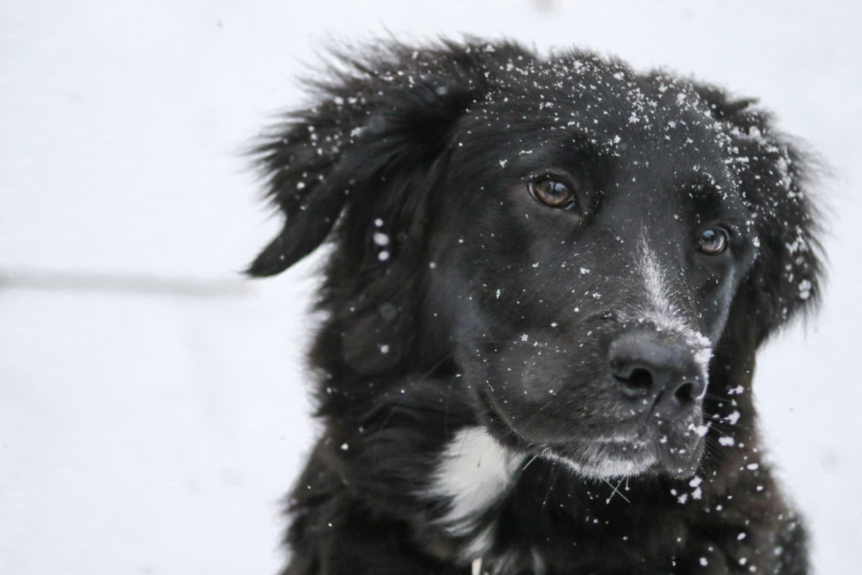Winter is a wonderful time of year as it’s filled with exciting new activities that can be enjoyed with furry companions. Although enjoyable for your clients and their pets, winter can be a difficult time of year for veterinary nurses and their practices. Snow, slush, ice, salt, and antifreeze can create more problems for veterinary practices this time of year as not only does it affect the accessibility of the clinic, but the animals’ overall experience in the practice itself. Here’s why!
Salt and Antifreeze
During the winter months, it is common practice for businesses to use salt to protect clients from slipping on ice. Antifreeze also tends to make even more of an appearance this time of year to ensure that liquids within vehicles do not freeze and cause damage to the radiator or other components. While these products have many uses, they can be extremely harmful to pets, and your clinic itself.
It is no surprise that dogs and cats enjoy sweet and salty tastes, but what happens when they begin to ingest salt and antifreeze? These substances can be hazardous to animals, especially antifreeze which is poisonous to animals, even if only a small amount is ingested. As animals walk across patches of ice that have been treated with salt, or snow that contains traces of antifreeze in it, these substances can be tracked into the clinic on their paws and left on surfaces such as floors, scales, exam tables and other equipment. If an animal begins to feel nervous, they may also start to lick their paws, causing them not only to ingest what they have tracked into the clinic but any other substances that previous patients have brought in with them as well! Next thing you know, the floor of your clinic has become an area filled with scents and tastes that are intriguing to dogs and cats, but that is incredibly harmful to them as well.
Slush and Snow
The first snowfall is exciting for any animal and their owner, but it means that your clinic needs to be prepared to accommodate the slippery conditions that it can create! It is common for veterinary clinics to have tiled or laminate floors to ensure for easy cleaning, but when slush and snow are tracked into the clinic on the bottom of boots and paws, it can create a very slippery surface. While pet owners may be prepared to adjust to these conditions, dogs and cats can struggle with keeping their balance. If animals, especially kittens and puppies or older cats and dogs, slip and fall on these surfaces, they can suffer from bruising, muscle tears, sprains, or even broken bones!
Snow can also be damaging to an animal’s paws as well, as it can quickly become encrusted on the hair and pads of their feet. When this happens, dogs and cats tend to bite and lick at their paws to remove the excess snow. This can lead to their paws becoming raw and cracked, causing them to bleed easily. If a dog or cat is entering into your clinic with paws that are raw and painful, they can quickly pick up any traces of chemicals that have been brought in, such as salt and antifreeze, or any chemicals that are used to disinfect surfaces, such as bleach. This can also further the spread of bacteria and fluids if their paws are bleeding and unprotected from the elements.
How Can Your Veterinary Clinic be Prepared?
While it may seem challenging to regulate the use of salt or antifreeze or prevent animals and their owners from entering into your clinic with snow-covered paws and boots, there is an easy way to keep your clinic safe for patients and staff!
Rescue® Veterinary Disinfectants are designed to disinfect surfaces quickly and efficiently, allowing for the appropriate contact time to be reached to destroy harmful bacteria. While destructive to pathogens, Rescue® Veterinary Disinfectants are safer for animals and staff, as it does not leave a scent and does not corrode surfaces or equipment. As it comes in three different formats; wipes, spray and concentrate, it is easy to utilize Rescue® Veterinary Disinfectants throughout your entire practice! With a quick mop or wipe of high-traffic surfaces, Rescue® is capable of removing salt and traces of antifreeze, as well as any bacteria that may have been tracked into the clinic. In just a few minutes each day, you can restore the cleanliness of your clinic, no matter how wintery or wet the weather!
To learn more about Rescue® Veterinary Disinfectants this winter season, contact our team or request a free sample of our Rescue® Wipes by filling out the form below. Enjoy the snow, everyone!
[gravityform id=”3″ title=”true” description=”true”]

